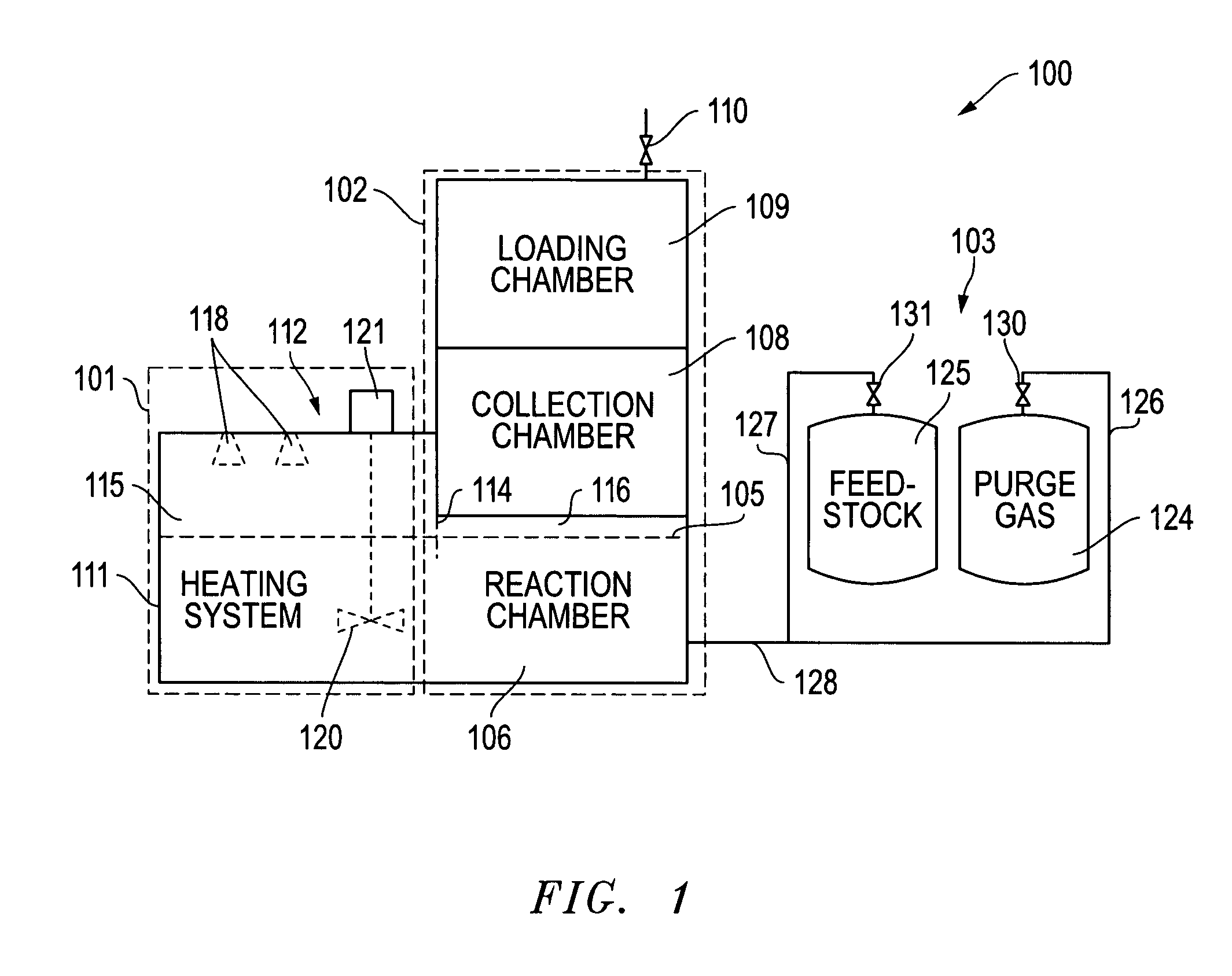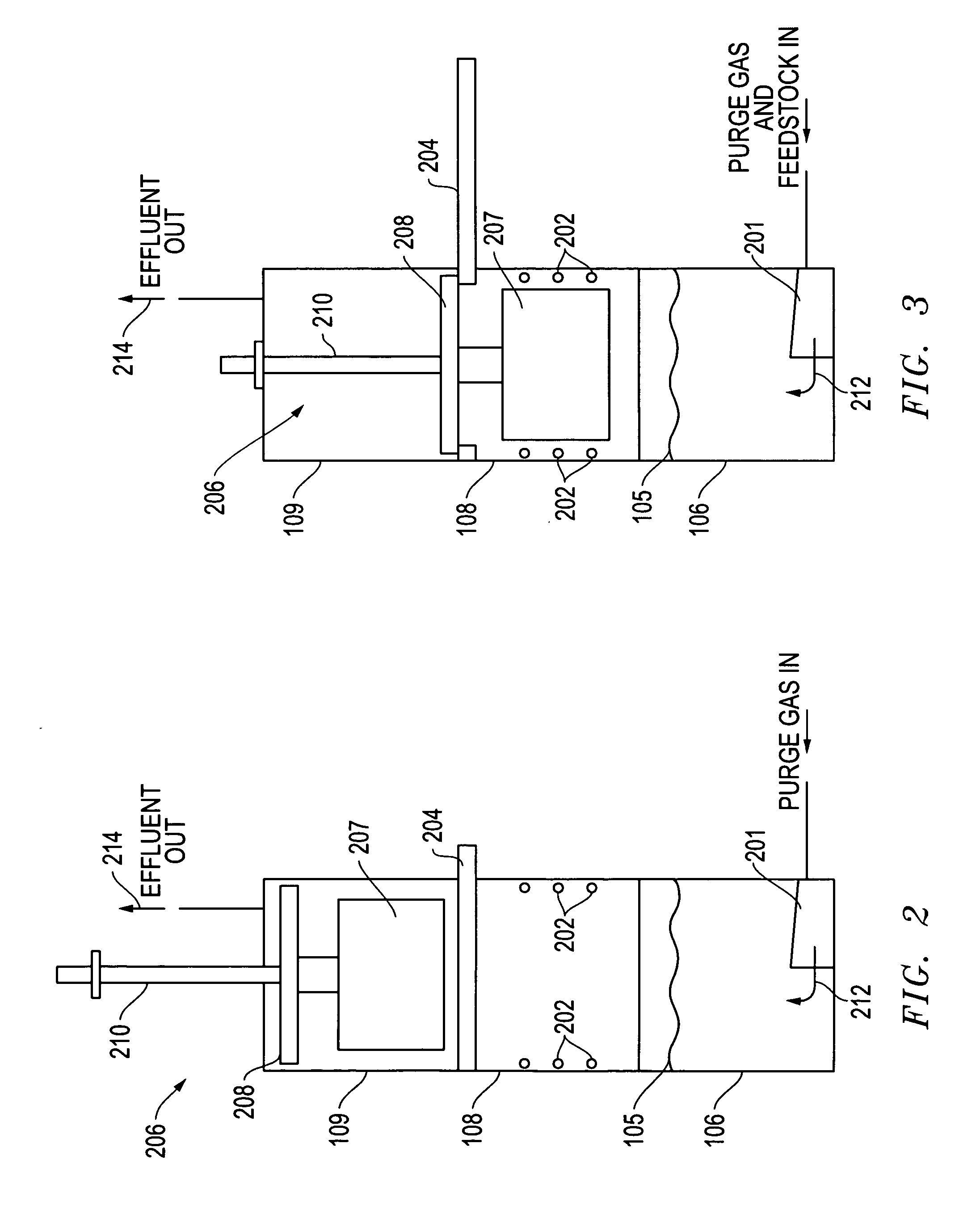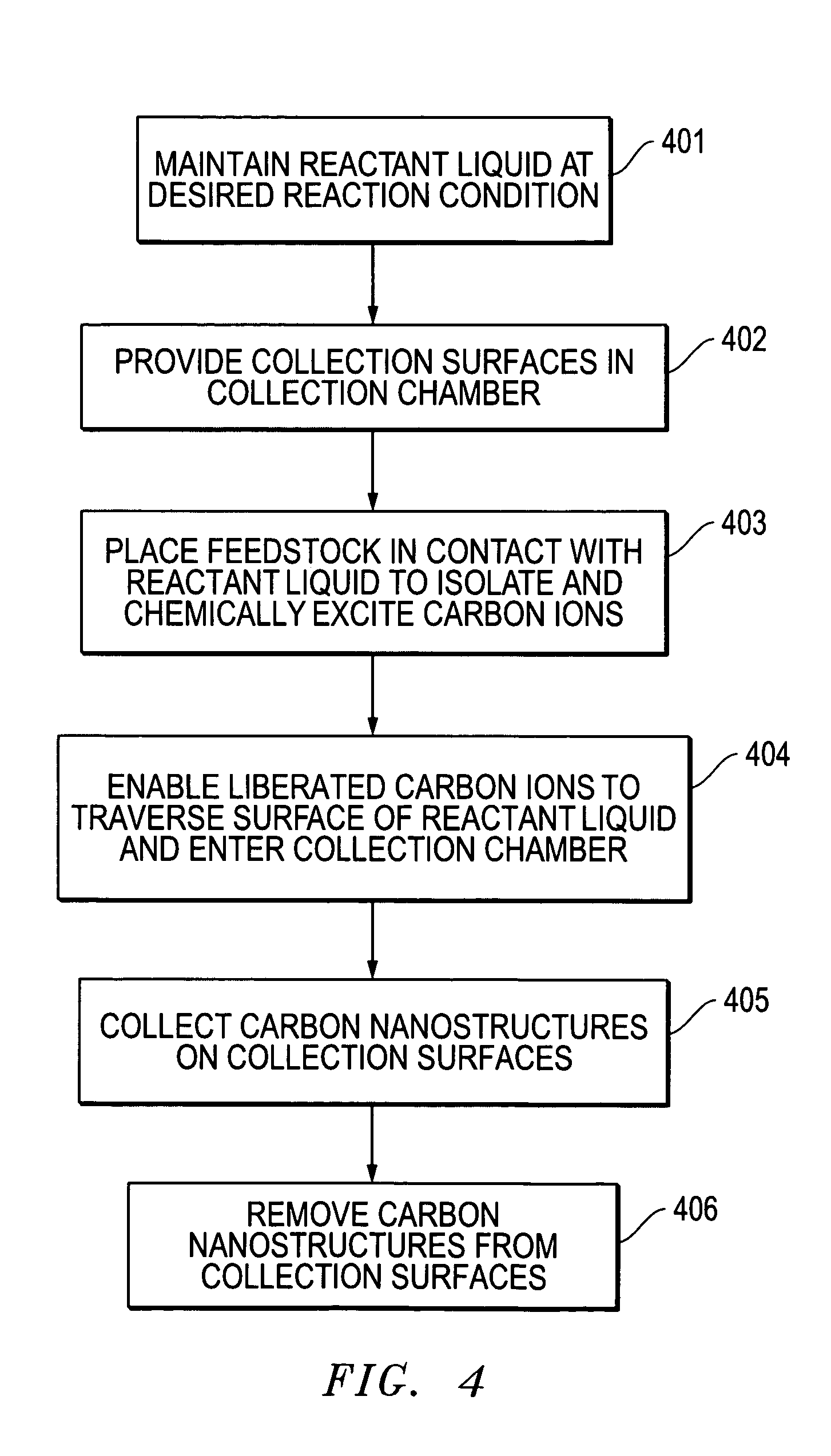Spherical carbon nanostructure and method for producing spherical carbon nanostructures
- Summary
- Abstract
- Description
- Claims
- Application Information
AI Technical Summary
Benefits of technology
Problems solved by technology
Method used
Image
Examples
example 1
[0052] In one test of the apparatus described above, rack 501 was loaded with six horizontal collection plates 502 spaced approximately one-half inch apart and five vertical collection plates 503 spaced approximately one and one-half (1.5) inch apart. The collection structure 207 made up of rack 501 and loaded collection plates 502 and 503 was then placed into loading chamber 109 suspended on manipulating structure 210 as described above in connection with FIG. 6. The airlock door associated with loading chamber 109 was then closed and the continuously injected argon gas allowed to purge the loading chamber of air that entered as the airlock door was open. After purging loading chamber 109 of air, insulating door 204 was opened and manipulating structure 210 was used to lower collection structure 207 from the position shown in FIG. 2 to the position shown in FIG. 3. In this lowered position, with collection structure 207 residing in collection chamber 108, the lowermost ends of the ...
example 2
[0058] The same procedure described in Example 1 above was conducted in an additional series of tests each using a lower initial temperature of collection structure 207 prior to starting the injection of the acetylene-acetone mixture, and using only horizontal collection plates 502. In these collection procedures, once collection structure 207 was in the position shown in FIG. 3, heater elements 202 were not activated and the acetylene-acetone mixture was injected immediately, prior to any significant heating of the collection structure. In these tests, the starting temperature of collection structure 207 was approximately 100° F., and the ending temperature was approximately 590° F. Also, for these tests, the flow of acetylene-acetone mixture was increased to seven (7) liters per minute for the injection period of two (2) hours. FIGS. 11-13 show SEM images of material collected from one of these tests. As shown in the SEM images, these tests also produced generally spherical carbon...
PUM
 Login to View More
Login to View More Abstract
Description
Claims
Application Information
 Login to View More
Login to View More - R&D
- Intellectual Property
- Life Sciences
- Materials
- Tech Scout
- Unparalleled Data Quality
- Higher Quality Content
- 60% Fewer Hallucinations
Browse by: Latest US Patents, China's latest patents, Technical Efficacy Thesaurus, Application Domain, Technology Topic, Popular Technical Reports.
© 2025 PatSnap. All rights reserved.Legal|Privacy policy|Modern Slavery Act Transparency Statement|Sitemap|About US| Contact US: help@patsnap.com



